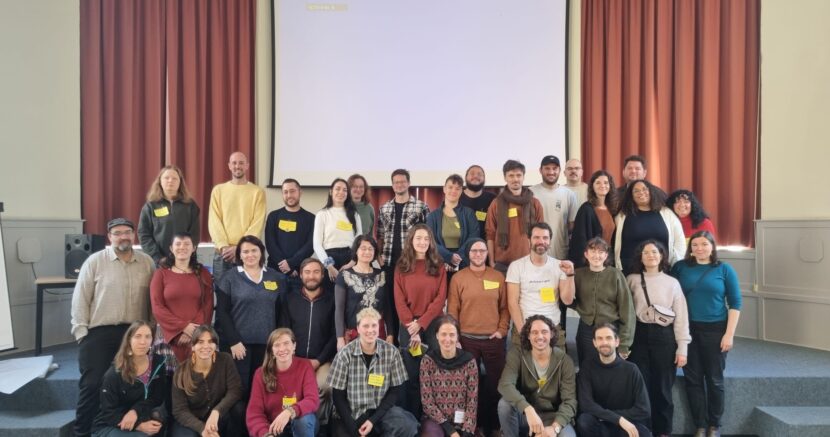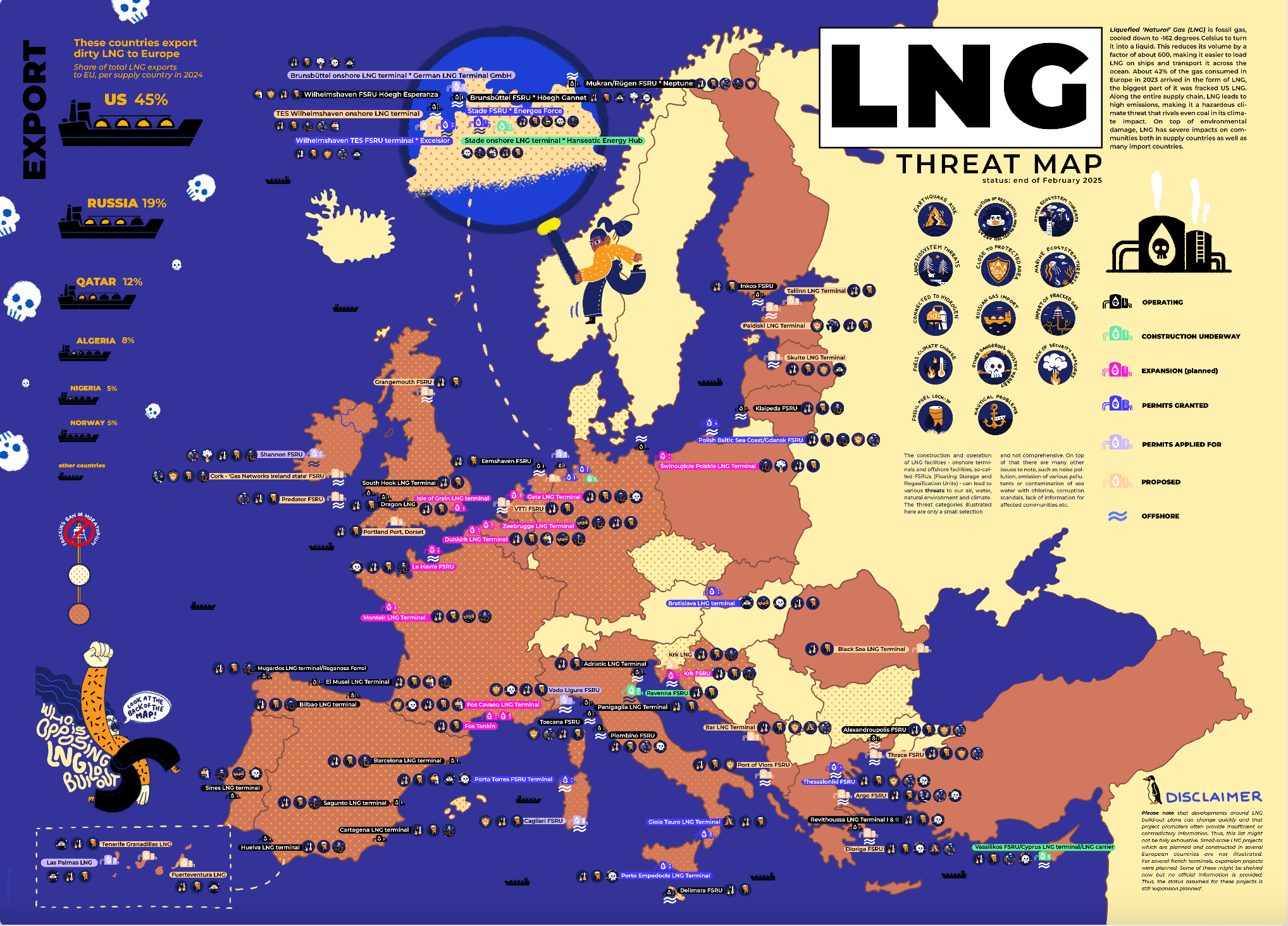
In the last week of November, in Brussels, the 2025 Beyond Gas Conference brought together 50 activists, researchers, environmentalists, and campaigners for two days of fruitful discussions. Co-hosted with Fossil Free Politics (FFP) and Friends of the Earth Europe (FoEE), it addressed a pan-European context where deregulation prioritizes economic interests over people interests, underscoring the need to counter fossil fuel lobbying against a fossil gas phase-out.
Day 1: Mapping Gas Dependency
The first day examined global gas trends, followed by country-specific insights from Central Eastern Europe, Spain, Argentina, Canada, and beyond. Participants shared contexts and challenges tied to gas reliance.
The day continued with a session on the political landscape highlighting shifts in 2024 and 2025: a right-leaning EU Commission and far-right gains in Member States are weakening the climate agenda. Discussions covered impacts on gas phase-out efforts and activist spaces, with exchanges on responses and best practices.
Following up, Fossil Free Politics, rooted in the Beyond Gas Network, presented its ongoing campaigns and key successes. FFP facilitated talks on national-level deregulation trends in climate policy, helping participants analyze different patterns, predict future risks, and share best practices to safeguard previous victories.
The day wrapped up with collaborative sessions where participants brainstormed and outlined potential joint campaigns, laying groundwork for day 2!
Day 2: Strategies and joint campaigning
Day two focused on joint campaigning and strategies. It began with a session titled “The fossil economy escapes hatches – where is gas hiding?”, which went beyond high-profile targets like LNG terminals and major pipelines. Participants examined subtler aspects of the gas industry, including ‘certified’ gas initiatives, hydrogen blending proposals, expansion in the petrochemical industry, and carbon capture and storage (CCS) technologies: All false tactics that sustain fossil gas expansion under different guises.
This was followed by a session on best practices and advice for engaging private sector actors, particularly banks and insurance companies that finance gas infrastructure. These financial actors are essential to project viability, and the group reviewed real-world examples of campaigns that successfully applied pressure, resulting in slowed development, funding withdrawals, or outright project cancellations.
Finally, the afternoon opened-up to over 20 participant-driven open spaces, self-organized sessions ranging from strategic discussions and theoretical reflection to the screening of socially engaged movies.
Looking Ahead: Civil Society’s Role in a Challenging Landscape
Marking the 9th edition of the Beyond Gas Conference in the Network’s 10th anniversary year, the meeting underscored the indispensable role of civil society in advancing the gas phase-out. With a deteriorating political climate, rising social tensions, and a resurgence in fossil gas promotion by industry actors, the gathering highlighted ongoing hurdles while affirming the value of cross-border coordination, solidarity, and knowledge exchange. Fossil fuel actors are stronger than ever. But we are proud to be united in this difficult time.
See you next year for the 10th edition, continuing to push for a gas-free Europe.





